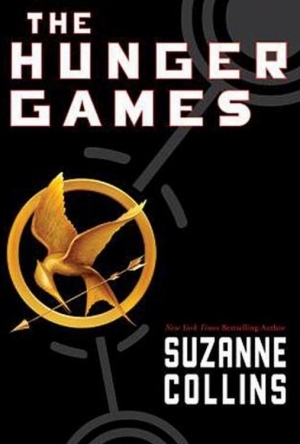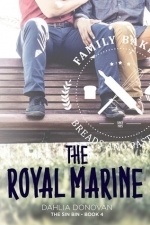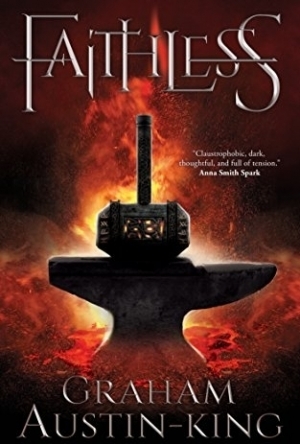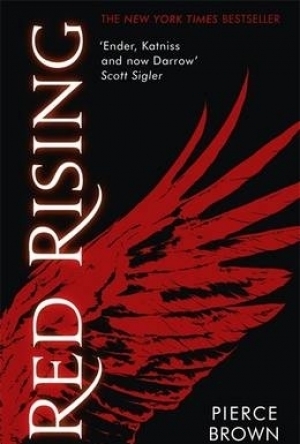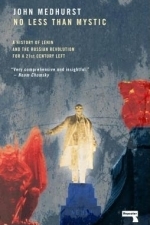Search
Search results
The Bandersnatch (199 KP) rated The Hunger Games in Books
Nov 7, 2019
The Hunger Games is a trilogy of YA dystopian novels written by American author Suzanne Collins. The story is set in an unspecified future, in a dystopian, post-apocalyptic nation of Panem located in North America. The country consists of the Wealthy Capital surrounded by the twelve (Originally thirteen) poorer districts, each one in various states of poverty. The story follows Katniss Everdeen as she takes her sisters place in the annual Hunger Games. The games are a televised event created as punishment for a past rebellion. Over the course of the books Katniss and the rest of Panem are plunged into Civil War thanks to Katniss inadvertently fuelling a hidden rebel fraction led by President Alma Coin of (the previously thought to be destroyed) District 13. After going through hell, loosing friends and the sister she tried to protect Katniss is eventually tried for killing Coin at the execution of Ex-President Snow and sent back to District 12. Katniss eventually marries fellow tribute Peeta Mellark (whom she was tied to during the games as the pair of star-crossed lovers) and eventually have two children a boy and a girl. Author Suzanne Collins stated that the inspiration for the story came to her after channel surfing through TV channels, having seen a reality show on one channel then saw footage of the Iraq invasion. The two began to blur in an unsettling way and the idea started to form. The Greek myth of Theseus also served as a basis for the story, with Collins saying that Katniss could be called a future Theseus and The Hunger Games being an interpretation of the old gladiatorial games.
The Hunger Games the titular book was released on September 14th 2008 under the publishing house Scholastic Press. The book had an initial print run of 50,00 copies eventually being bumped up twice to 200,000 copies. By February 2010 the book had sold 800,000 copies and rights to the novel have been sold in 38 territories. In November 2008 The Hunger Games was placed on the New York Times best seller list where it would remain for 100 weeks (just over three months). By the time the books film adaption released in march 2012 the book had been on USA Today's best seller list for 135 weeks (Four months) and sold over 17.5 million copies. The book received several awards and honours such as Publishers Weekley's “Best book of the year 2008”, the New York Times “Notable children's book 2008” and was the 2009 young adult fiction category winner of the Golden Duck award. The book also received the California Young Reader medal in 2011.
Catching Fire, the second book was published on September 1st 2009 under Scholastic. As the sequel to the Hunger Games book it continues the story of Katniss Everdeen and the post-apocalyptic nation of Panem as rebellion begins. The book received mixed reviews but was placed on Time Magazines Top 100 fiction list of 2009. Catching fire had an initial print of 350,00 copies but was (Like its predecessor) had grown to 750,00 by February 2010. The book has sold over 10 million copies.
Mocking-jay the third and final book in the Hunger Games Trilogy and was published August 24th 2010 by Scholastic. The book had a 1.2 million copy print that was bumped up from 750,000 copies and in its first week sold over 450,00 copies. Reviews were favourable with the book and notes that it thoroughly explores the themes of the other books.
I really love the books and regularly read them. Whenever I do read them I tend to read all three of them in the space of a week. To be fair whilst I had heard of them before the first movie release I didn't start reading them until I'd seen the first movie. I did read Catching Fire and Mockingjay before their movie equivalents hit the screens. Whilst The Hunger Games was a brilliant opener and Mockingjay was a brilliant ender, I agree with a few reviewers that Catching fire had a delayed start and it took a bit of time to get into the action of the story at large.
Suzanne Collins was born in Hartford Connecticut on the 10th of August 1962 as the youngest fourth child to Jane Bradley Collins and Lt. Col. Michael Jon Collins a decorated U. S. Air Force officer. As a daughter of a military man she was constantly moving with her family and spent her childhood in the eastern united states. Collins went to the Alabama school of fine arts in Birmingham 1980 as a theatre arts Major. Collins went on to complete a Bachelor of arts from Indiana University in 1985 and telecommunications and in 1989 Collins earned her M. F. A. in dramatic writing from NYU Tisch school of arts. Collins began her career in 1991 as a writer for children's television shows and won a nomination in animation for co-writing the critically acclaimed Christmas special Santa, Baby!. Collins after meeting James Proimos whilst working on a children's show felt the urge to write children's books and spent the early 2000's writing five books of the Underland Chronicles; Gregor the Overlander, Gregor and the Prophecy of Bane, Gregor and the curse of the Warmbloods, Gregor and the Marks of Secret and Gregor and the Code of Claw. The influence for those books came from Alice in Wonderland. During the late 2000's she ends up writing the Hunger Games trilogy which went onto a famous movie trilogy. As the result of the hunger games trilogy popularity Collins was named one of Times Magazine's most Influential people of 2010. On June 17th 2019 Collins announced she was writing a prequel to the Hunger Games and is scheduled to be released on 19th May 2020, the book is to focus on the failed rebellion 64 years before the Hunger Games trilogy.
I highly respect the Author Suzanne Collins for both her work as a writer of Children's media and for her creativity in creating both the Hunger Games and the Underland Chronicles. Her creativity has been awarded with her books popularity and being announced amongst Time Magazine's 2010's most influential people and Amazons best selling Kindle author in 2012.
In March 2009 Lions Gate Entertainment entered into a co-production agreement with Nina Jacobson's Production company Color Force for the Hunger Games. Novel writer Suzanne Collins adapted the book in collaboration with screenwriter Billy Ray and Director Gary Ross. Actors Jennifer Lawrence, Josh Hutchinson and Liam Hemsworth were hired for the roles of Katniss, Peeta and Gale respectively. Lawrence was four years older than Katniss was in the books but Collins said she would rather the actress be older than the character since it demanded a certain maturity and power. Collins also liked Lawrence stating she was the “only one who truly captured the character I wrote in the book”. The Hunger Games Movie was released on march 23rd 2012. The Hunger Games: Catching Fire was released on November 22nd 2013 with Francis Lawrence being hired as Director and actors Phillip Seymour Hoffman, Jena Malone and Sam Claflin being hired as Plutarch Heavensbee, Johanna Mason and Finneck Odair respectively. The Hunger Games: Mockingjay was split into 2 and Part 1 was released on November 21st 2014 and part 2 on November 20th 2015 Francis Lawrence remained Director for the final movies with Actor Julianne Moore joining the cast as President Alma Coin.
I loved the movies point blank and whilst it has its flaws like most movies often do I think its redeeming quality has been it faithfulness in sticking to the books as closely as possible and the actors representation of Suzanne Collins characters such as Jennifer Lawrence as Katniss, Donald Sunderland and President Snow, Stanley Tucci as Ceaser Flickerman, Woody Harrelson as Haymich Abernathy and Elizabeth Banks as Effie Trinkett. Whilst all the actors were very good and were chosen well for their characters. These actors in particular I feel did exceptionally well in bringing their characters to life especially Elizabeth Banks, Stanley Tucci and Woody Harrelson but then I am a very big fan of theirs so I may be a little biased.
The Hunger Games the titular book was released on September 14th 2008 under the publishing house Scholastic Press. The book had an initial print run of 50,00 copies eventually being bumped up twice to 200,000 copies. By February 2010 the book had sold 800,000 copies and rights to the novel have been sold in 38 territories. In November 2008 The Hunger Games was placed on the New York Times best seller list where it would remain for 100 weeks (just over three months). By the time the books film adaption released in march 2012 the book had been on USA Today's best seller list for 135 weeks (Four months) and sold over 17.5 million copies. The book received several awards and honours such as Publishers Weekley's “Best book of the year 2008”, the New York Times “Notable children's book 2008” and was the 2009 young adult fiction category winner of the Golden Duck award. The book also received the California Young Reader medal in 2011.
Catching Fire, the second book was published on September 1st 2009 under Scholastic. As the sequel to the Hunger Games book it continues the story of Katniss Everdeen and the post-apocalyptic nation of Panem as rebellion begins. The book received mixed reviews but was placed on Time Magazines Top 100 fiction list of 2009. Catching fire had an initial print of 350,00 copies but was (Like its predecessor) had grown to 750,00 by February 2010. The book has sold over 10 million copies.
Mocking-jay the third and final book in the Hunger Games Trilogy and was published August 24th 2010 by Scholastic. The book had a 1.2 million copy print that was bumped up from 750,000 copies and in its first week sold over 450,00 copies. Reviews were favourable with the book and notes that it thoroughly explores the themes of the other books.
I really love the books and regularly read them. Whenever I do read them I tend to read all three of them in the space of a week. To be fair whilst I had heard of them before the first movie release I didn't start reading them until I'd seen the first movie. I did read Catching Fire and Mockingjay before their movie equivalents hit the screens. Whilst The Hunger Games was a brilliant opener and Mockingjay was a brilliant ender, I agree with a few reviewers that Catching fire had a delayed start and it took a bit of time to get into the action of the story at large.
Suzanne Collins was born in Hartford Connecticut on the 10th of August 1962 as the youngest fourth child to Jane Bradley Collins and Lt. Col. Michael Jon Collins a decorated U. S. Air Force officer. As a daughter of a military man she was constantly moving with her family and spent her childhood in the eastern united states. Collins went to the Alabama school of fine arts in Birmingham 1980 as a theatre arts Major. Collins went on to complete a Bachelor of arts from Indiana University in 1985 and telecommunications and in 1989 Collins earned her M. F. A. in dramatic writing from NYU Tisch school of arts. Collins began her career in 1991 as a writer for children's television shows and won a nomination in animation for co-writing the critically acclaimed Christmas special Santa, Baby!. Collins after meeting James Proimos whilst working on a children's show felt the urge to write children's books and spent the early 2000's writing five books of the Underland Chronicles; Gregor the Overlander, Gregor and the Prophecy of Bane, Gregor and the curse of the Warmbloods, Gregor and the Marks of Secret and Gregor and the Code of Claw. The influence for those books came from Alice in Wonderland. During the late 2000's she ends up writing the Hunger Games trilogy which went onto a famous movie trilogy. As the result of the hunger games trilogy popularity Collins was named one of Times Magazine's most Influential people of 2010. On June 17th 2019 Collins announced she was writing a prequel to the Hunger Games and is scheduled to be released on 19th May 2020, the book is to focus on the failed rebellion 64 years before the Hunger Games trilogy.
I highly respect the Author Suzanne Collins for both her work as a writer of Children's media and for her creativity in creating both the Hunger Games and the Underland Chronicles. Her creativity has been awarded with her books popularity and being announced amongst Time Magazine's 2010's most influential people and Amazons best selling Kindle author in 2012.
In March 2009 Lions Gate Entertainment entered into a co-production agreement with Nina Jacobson's Production company Color Force for the Hunger Games. Novel writer Suzanne Collins adapted the book in collaboration with screenwriter Billy Ray and Director Gary Ross. Actors Jennifer Lawrence, Josh Hutchinson and Liam Hemsworth were hired for the roles of Katniss, Peeta and Gale respectively. Lawrence was four years older than Katniss was in the books but Collins said she would rather the actress be older than the character since it demanded a certain maturity and power. Collins also liked Lawrence stating she was the “only one who truly captured the character I wrote in the book”. The Hunger Games Movie was released on march 23rd 2012. The Hunger Games: Catching Fire was released on November 22nd 2013 with Francis Lawrence being hired as Director and actors Phillip Seymour Hoffman, Jena Malone and Sam Claflin being hired as Plutarch Heavensbee, Johanna Mason and Finneck Odair respectively. The Hunger Games: Mockingjay was split into 2 and Part 1 was released on November 21st 2014 and part 2 on November 20th 2015 Francis Lawrence remained Director for the final movies with Actor Julianne Moore joining the cast as President Alma Coin.
I loved the movies point blank and whilst it has its flaws like most movies often do I think its redeeming quality has been it faithfulness in sticking to the books as closely as possible and the actors representation of Suzanne Collins characters such as Jennifer Lawrence as Katniss, Donald Sunderland and President Snow, Stanley Tucci as Ceaser Flickerman, Woody Harrelson as Haymich Abernathy and Elizabeth Banks as Effie Trinkett. Whilst all the actors were very good and were chosen well for their characters. These actors in particular I feel did exceptionally well in bringing their characters to life especially Elizabeth Banks, Stanley Tucci and Woody Harrelson but then I am a very big fan of theirs so I may be a little biased.
Merissa (13749 KP) rated The Royal Marine (The Sin Bin #4) in Books
Nov 17, 2017
The Royal Marine (The Sin Bin #4) by Dahlia Donovan
The Royal Marine is the fourth book in The Sin Bin series, and it's time for Hamish's story. He has worked with Earp for a while now, and get set up on a blind date with Akash. Luckily (or unluckily) Akash is set up with Scottie on the same evening. Now we all know that Scottie is having major issues at the moment and, to be fair, acting like a jerk. So it comes as no surprise when Akash chooses to be with Hamish. Scottie is none too pleased about this, and continues to pop up throughout the book, with pleas and demands for Akash to go for a drink with him. During this time, Akash and Hamish are slowly getting to know each other. The spark is there, but it needs to be more than just sex. In between Akash's bakery and Hamish's work overseas, their relationship continues to move forward.
Now, I'm stopping right there, because I could go on. I could tell you about what a first class prize prat Scottie is, and how I think (hope) that I know who his match is. I could tell you how amazingly written the twins are, and how brilliant Akash is with them. I could tell you about the constant wit and banter, in amongst the danger, from Hamish, Earp, and the rest of the team. But seriously? Why would I do that? Why would I HAVE to do that? This is the fourth book in the series, and I would recommend that you read them in order for total enjoyment. So therefore, you know about Dahlia Donovan's writing style, her quick wit and sense of humour that comes across loud and clear in her writing. You know some of the previous characters and like/love the updates on their lives. So really, I don't have to tell you ANYTHING about this book, series, or author!
In case you haven't realised yet, I love Dahlia Donovan's books, her writing style, her characters, her charm. What I don't like is not having a mascara warning, and sobbing into my breakfast as I desperately try to finish The Royal Marine before I start work. Oh my, this book ripped my heart out. Did I get a happy ending? I'll leave that to you to read and find out.
I absolutely recommend this book, and the series, so GO READ IT! Now!
(And, no, I wasn't serious about the mascara warning before someone says it should be written on the cover somewhere!)
* A copy of this book was provided to me with no requirements for a review. I voluntarily read this book, and my comments here are my honest opinion. *
Merissa
Archaeolibrarian - I Dig Good Books!
Now, I'm stopping right there, because I could go on. I could tell you about what a first class prize prat Scottie is, and how I think (hope) that I know who his match is. I could tell you how amazingly written the twins are, and how brilliant Akash is with them. I could tell you about the constant wit and banter, in amongst the danger, from Hamish, Earp, and the rest of the team. But seriously? Why would I do that? Why would I HAVE to do that? This is the fourth book in the series, and I would recommend that you read them in order for total enjoyment. So therefore, you know about Dahlia Donovan's writing style, her quick wit and sense of humour that comes across loud and clear in her writing. You know some of the previous characters and like/love the updates on their lives. So really, I don't have to tell you ANYTHING about this book, series, or author!
In case you haven't realised yet, I love Dahlia Donovan's books, her writing style, her characters, her charm. What I don't like is not having a mascara warning, and sobbing into my breakfast as I desperately try to finish The Royal Marine before I start work. Oh my, this book ripped my heart out. Did I get a happy ending? I'll leave that to you to read and find out.
I absolutely recommend this book, and the series, so GO READ IT! Now!
(And, no, I wasn't serious about the mascara warning before someone says it should be written on the cover somewhere!)
* A copy of this book was provided to me with no requirements for a review. I voluntarily read this book, and my comments here are my honest opinion. *
Merissa
Archaeolibrarian - I Dig Good Books!
Whatchareadin (174 KP) rated House Divided in Books
May 10, 2018
Erin and her husband, Jack live their professional lives on opposite sides of the aisle. Erin's blood bleeds blue, while Jack reports on all things red. When they are home, all of that is put to the side. Jack really doesn't believe most of the garbage he reports on, which makes their relationship work. But when Jack gets a new job at the same time Erin loses hers, their relationship and family will be put to the test.
Thank you to Jami Deise for the opportunity to read and review this book. This is the first book I have read from this author and it was a great political/family novel.
What would you do, if you found out your family was about to hit it big time? That you're husband's name was about to be on everyone's lips. All of a sudden people are nicer to you and things just seem to come easier. Erin feels very skeptical about Jack's new job and doesn't like the man it is turning him in to. He used to be laid back and right now, he seems on edge about everything. Erin has just lost her job, but the whole operation shut down after the election. She is eager to find a new job, but Jack insists she stays home with the kids since he will be making so much money. But money isn't everything and it definitely isn't buying them happiness.
I will say this about Erin, she is a strong willed woman who I'm not sure if I could fill her shoes. Some women enjoy working, I am one of those as well, especially when it's a job that I enjoy. So if I had lost that job, through no fault of my own I would be devastated and I would expect my husband to be by my side. I don't think Erin had that opportunity to mourn her job the way she wanted. She comes home to tell her husband about it just to find out he's landed a new job himself making a million dollars a year. It's more money then they have ever seen, but Erin is still a little skeptical about it. When she sees changes in Jack that she is not used to, it further confirms her suspicions that maybe this isn't the right job for him. The fallout from the two of them is immediate. Jack telling her that she doesn't need to work, she can stay home with their kids, when that is the last thing she wants to do.
Overall this was a cute quirky book. It touched me since it was based where I live. I was able to read this book quickly and it was hard to put down.
Thank you to Jami Deise for the opportunity to read and review this book. This is the first book I have read from this author and it was a great political/family novel.
What would you do, if you found out your family was about to hit it big time? That you're husband's name was about to be on everyone's lips. All of a sudden people are nicer to you and things just seem to come easier. Erin feels very skeptical about Jack's new job and doesn't like the man it is turning him in to. He used to be laid back and right now, he seems on edge about everything. Erin has just lost her job, but the whole operation shut down after the election. She is eager to find a new job, but Jack insists she stays home with the kids since he will be making so much money. But money isn't everything and it definitely isn't buying them happiness.
I will say this about Erin, she is a strong willed woman who I'm not sure if I could fill her shoes. Some women enjoy working, I am one of those as well, especially when it's a job that I enjoy. So if I had lost that job, through no fault of my own I would be devastated and I would expect my husband to be by my side. I don't think Erin had that opportunity to mourn her job the way she wanted. She comes home to tell her husband about it just to find out he's landed a new job himself making a million dollars a year. It's more money then they have ever seen, but Erin is still a little skeptical about it. When she sees changes in Jack that she is not used to, it further confirms her suspicions that maybe this isn't the right job for him. The fallout from the two of them is immediate. Jack telling her that she doesn't need to work, she can stay home with their kids, when that is the last thing she wants to do.
Overall this was a cute quirky book. It touched me since it was based where I live. I was able to read this book quickly and it was hard to put down.

The eBay Business Handbook: How Anyone Can Build a Business and Make Big Money on eBay.co.uk
Book
Completely revised, updated and expanded new edition Anyone can buy and sell on eBay. But how many...
Good dark fantasy in an interesting setting
Faithless takes place in a world where blacksmithing is a big deal. Those who master the arts of smithing are priests in the religion of the Forgefather. The lowest class of people are those spending their lives down mines, struggling to find anything more valuable than coal in order to meet their tally and avoid a whipping. This is the essence of the world we are in, with an established class system and clear economy, based on metal ores.
There is a hint of magic here, with chanting at the forge, but until the final few chapters it is unclear whether this is magic or simply a way to mark time and ensure the metal is at the right temperature and worked at the right pace. Not overly labouring the magic here was an excellent choice by the author, as it keeps the attention on the mundane aspects of life, which is excellently told.
The story follows two main characters, firstly Wynn, a young lad sold (or mis-sold in his mind) by his father, a struggling farmer, into the mines for a life of back-breaking work down cramped, dangerous caves, endlessly trying to find enough ore to avoid a beating. His only chance of escaping the mines is to pass the tests and have a chance of ascending to the temple and possibly priesthood. Some way through the book we then meet Kharios, a young adult who appears to have somewhat failed in his first attempts at entering the priesthood (smithing) and is trying to get back to the forge.
The characters' stories are very similar, with hard, thankless, dangerous labour and periods of learning. For some time I struggled to tell the difference between them, thinking they seemed like very similar characters, but I have since re-thought that for reasons.
I found the pacing a little off. There were times I felt like I was reading a biography of a miner, rather than a fantasy novel, as long chapters are essentially that. And then these develop into long chapters learning smithing, was again a bit of a slog. And then all of a sudden we have periods of conflict down the mines, accidents, cave-ins, and the eventual calamity that leads to the second half of the book. The changes in pace were sudden and exciting, but the change was a little extreme at times.
I loved the way the two stories seemed at times independent yet similar, but eventually start to overlap. Though again, we have a change in pace where exciting, cataclysmic events are put aside for another chapter of walloping hot iron.
These pacing issues aside, this was an interesting and well written book with an unusual setting and a good message on belief systems.
There is a hint of magic here, with chanting at the forge, but until the final few chapters it is unclear whether this is magic or simply a way to mark time and ensure the metal is at the right temperature and worked at the right pace. Not overly labouring the magic here was an excellent choice by the author, as it keeps the attention on the mundane aspects of life, which is excellently told.
The story follows two main characters, firstly Wynn, a young lad sold (or mis-sold in his mind) by his father, a struggling farmer, into the mines for a life of back-breaking work down cramped, dangerous caves, endlessly trying to find enough ore to avoid a beating. His only chance of escaping the mines is to pass the tests and have a chance of ascending to the temple and possibly priesthood. Some way through the book we then meet Kharios, a young adult who appears to have somewhat failed in his first attempts at entering the priesthood (smithing) and is trying to get back to the forge.
The characters' stories are very similar, with hard, thankless, dangerous labour and periods of learning. For some time I struggled to tell the difference between them, thinking they seemed like very similar characters, but I have since re-thought that for reasons.
I found the pacing a little off. There were times I felt like I was reading a biography of a miner, rather than a fantasy novel, as long chapters are essentially that. And then these develop into long chapters learning smithing, was again a bit of a slog. And then all of a sudden we have periods of conflict down the mines, accidents, cave-ins, and the eventual calamity that leads to the second half of the book. The changes in pace were sudden and exciting, but the change was a little extreme at times.
I loved the way the two stories seemed at times independent yet similar, but eventually start to overlap. Though again, we have a change in pace where exciting, cataclysmic events are put aside for another chapter of walloping hot iron.
These pacing issues aside, this was an interesting and well written book with an unusual setting and a good message on belief systems.

Arlo: An MM Age Play Daddy Romance
Book
When this little gets in trouble, it’s Daddy to the rescue THOMAS Since a knee injury forced...
Hazel (1853 KP) rated Red Rising in Books
May 30, 2017
Mildly boring
This eBook was provided by the publisher via NetGalley in exchange for an honest review
Red Rising by debut author Pierce Brown is a very difficult book to review. It is clear that Brown is an excellent writer with amazing ideas, but at the same time it does not feel possible to rate the book any higher that two or three stars. This first book of three is somewhat alike The Hunger Games Trilogy by Suzanne Collins and has some very exciting themes. However at other times it provoked a range of emotions from disgust to almost verging on boredom.
Set thousands of years in the future, the world has become colour coded. Gold are the elite, the ruling colour, and at the bottom of the pile are the Reds. Darrow is a Red and lives below the surface of the planet Mars in the mines with the responsibility of helping to make the planet’s surface habitable for humans in the future. He soon discovers that the ruling societies have been lying to him all his life, and to the many generations before him. But there is an uprising brewing and Darrow has been chosen to play a vital role in it, even though that means pretending to be the enemy.
Although it was difficult to get into the novel it appeared to be clear what the plot would be about. Wrong! Once Darrow has been trained to behave like a Gold the storyline changes completely. It is almost as though it is a different book altogether. Red Rising suddenly becomes Hunger Games-esque and the situations with the Reds, while being referred to once or twice, was all but forgotten. Presumably those original themes will continue within the final books of the trilogy.
Living under the surface of Mars with no sunlight speeds up the aging process of the inhabitants. People in the thirties are considered old; therefore even though Darrow is a teenager in Earth years, he is portrayed as a man – an image that is difficult to shake off throughout the entire book. Once Darrow is living with the Golds and, supposedly, resembling his true age, it is still easy to forget that he is young. This may change the way the reader pictures the scenes compared with how the author intended them to be imagined. The characters are still only children but may be mistaken for adults due Darrow’s opening scenes.
It cannot be denied that Brown is a very knowledgeable writer. As well as writing in an exceptionally well-structured way, he incorporates a vast amount of high culture into his story. A lot of the novel is influenced by Greek and Roman mythology and he also quotes famous philosophers such as Cicero and Plato. So despite its science fiction genre it also has a slight educational nature.
Something interesting about Red Rising was the character development of Darrow. At the beginning he was rather naïve, believing everything he was told, following orders etc. But soon he becomes more confident, clever, Gold-like. However he then becomes like a wild beast, killing to survive, to win. Thankfully his cleverness takes control and he realises that he needs to become a leader and not a tyrant. Towards the end he even becomes messiah-like. As Darrow progresses through these changes he becomes a more likable character.
I am not sure whether I want to read the next installment of Red Rising. For the beginning storyline to continue and become the main focus, the book would need to be completely different. This could be a good thing because, as mentioned, there were times when it was a little boring, however there’s the risk that it will not feel like a follow on from the first book. I do not want to put anyone off from reading it, but I will honestly say that it was not really what I was expecting.
Red Rising by debut author Pierce Brown is a very difficult book to review. It is clear that Brown is an excellent writer with amazing ideas, but at the same time it does not feel possible to rate the book any higher that two or three stars. This first book of three is somewhat alike The Hunger Games Trilogy by Suzanne Collins and has some very exciting themes. However at other times it provoked a range of emotions from disgust to almost verging on boredom.
Set thousands of years in the future, the world has become colour coded. Gold are the elite, the ruling colour, and at the bottom of the pile are the Reds. Darrow is a Red and lives below the surface of the planet Mars in the mines with the responsibility of helping to make the planet’s surface habitable for humans in the future. He soon discovers that the ruling societies have been lying to him all his life, and to the many generations before him. But there is an uprising brewing and Darrow has been chosen to play a vital role in it, even though that means pretending to be the enemy.
Although it was difficult to get into the novel it appeared to be clear what the plot would be about. Wrong! Once Darrow has been trained to behave like a Gold the storyline changes completely. It is almost as though it is a different book altogether. Red Rising suddenly becomes Hunger Games-esque and the situations with the Reds, while being referred to once or twice, was all but forgotten. Presumably those original themes will continue within the final books of the trilogy.
Living under the surface of Mars with no sunlight speeds up the aging process of the inhabitants. People in the thirties are considered old; therefore even though Darrow is a teenager in Earth years, he is portrayed as a man – an image that is difficult to shake off throughout the entire book. Once Darrow is living with the Golds and, supposedly, resembling his true age, it is still easy to forget that he is young. This may change the way the reader pictures the scenes compared with how the author intended them to be imagined. The characters are still only children but may be mistaken for adults due Darrow’s opening scenes.
It cannot be denied that Brown is a very knowledgeable writer. As well as writing in an exceptionally well-structured way, he incorporates a vast amount of high culture into his story. A lot of the novel is influenced by Greek and Roman mythology and he also quotes famous philosophers such as Cicero and Plato. So despite its science fiction genre it also has a slight educational nature.
Something interesting about Red Rising was the character development of Darrow. At the beginning he was rather naïve, believing everything he was told, following orders etc. But soon he becomes more confident, clever, Gold-like. However he then becomes like a wild beast, killing to survive, to win. Thankfully his cleverness takes control and he realises that he needs to become a leader and not a tyrant. Towards the end he even becomes messiah-like. As Darrow progresses through these changes he becomes a more likable character.
I am not sure whether I want to read the next installment of Red Rising. For the beginning storyline to continue and become the main focus, the book would need to be completely different. This could be a good thing because, as mentioned, there were times when it was a little boring, however there’s the risk that it will not feel like a follow on from the first book. I do not want to put anyone off from reading it, but I will honestly say that it was not really what I was expecting.
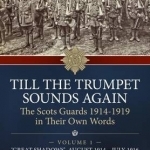
Till the Trumpet Sounds Again: Volume 1
Book
This is a story of soldiers at war against the background the two battalions of the Scots Guards who...

Blissful Birth by Glenn Harrold & Janey Lee Grace: Advice & Self-Hypnosis Relaxation
Health & Fitness and Education
App
Blissful Birth is the ultimate app to help you before, during and after giving birth. Having a...
Hazel (1853 KP) rated No More Than Mystic in Books
Sep 23, 2017
Russian Revolution
I received this book for free through Goodreads First Reads.
No Less Than Mystic: A Story of Lenin and the Russian Revolution for a 21st Century Left by John Medhurst is an in-depth historical and political insight to the truth about what really happened in Russia before, during and after the Bolshevik insurrection of October 1917. Beginning with the end of the Tsars rule and ending with Stalinism, Medhurst unearths the fact from the fiction, challenging the information the world has been led to believe.
As mentioned in Medhurst lengthy introduction, previous books on the subject are often biased and inaccurate. Swayed by political beliefs, authors and historians often pass judgement by using the information they have chosen to believe, dismissing anything that goes against their viewpoint. In this book, Medhurst filters through these false histories, preferring to cite from publications written at the time rather than those penned by people who did not witness the events between 1903 and 1921.
Medhurst’s narrative is more political than historical, often going off on tangents. In order to for the reader to obtain some sort of connection with the events described, the author contrasts them with more recent occurrences that readers may have observed or at least understand. These include the British miner’s strike, feminist movements, the Greek economy and a variety of other capitalist struggles.
The Russian revolution is a complex affair that cannot easily be condensed. As a result, No More Than Mystic exceeds 600 pages and covers every event, no matter how big or small, that contributed to the rise of USSR. Russia was a dangerous place to live during the 20th century, particularly when Leninism spiralled into Stalinism. However, Leninism was not all the history books make it out to be.
During GCSE History, one teacher led his class to believe that Lenin was good and Stalin was bad, however, the reality was much more complicated than that. Lenin was not the good guy that many painted him to be. Thousands died as a result of his policies from both execution and starvation. Yet, at the same time, Medhurst tries to point out the reasoning behind the ideas of the communist rulers, refusing to give a personal opinion without laying bare both sides of the argument.
Although this book is accurate and educational, it is not the easiest to sit down and read. Extensive chapters full of mind-numbing information detract from the comprehensive insightfulness of the content. Notwithstanding the fact that the inclusion of contrasting capitalist examples helps the reader to establish some form of familiar ground, the sudden changes in topic, location and time period are often confusing and hard to follow.
No Less Than Mystic is for the intellectual person with a great interest in 20th-century Russian history and communist affairs. Without any prior education on the topic, this book will not mean anything. It attempts to challenge the ingrained beliefs people have about what happened during the Bolshevik insurrection. Those who do not know anything will not benefit from the confronting enlightenment.
In all, No Less Than Mystic is a well-researched academic text that brings a fresh history of Lenin and the Russian Revolution. Those who want an unbiased truth need to read this book and be sceptical about any other on the topic. In order to form opinions, one must know the facts.
No Less Than Mystic: A Story of Lenin and the Russian Revolution for a 21st Century Left by John Medhurst is an in-depth historical and political insight to the truth about what really happened in Russia before, during and after the Bolshevik insurrection of October 1917. Beginning with the end of the Tsars rule and ending with Stalinism, Medhurst unearths the fact from the fiction, challenging the information the world has been led to believe.
As mentioned in Medhurst lengthy introduction, previous books on the subject are often biased and inaccurate. Swayed by political beliefs, authors and historians often pass judgement by using the information they have chosen to believe, dismissing anything that goes against their viewpoint. In this book, Medhurst filters through these false histories, preferring to cite from publications written at the time rather than those penned by people who did not witness the events between 1903 and 1921.
Medhurst’s narrative is more political than historical, often going off on tangents. In order to for the reader to obtain some sort of connection with the events described, the author contrasts them with more recent occurrences that readers may have observed or at least understand. These include the British miner’s strike, feminist movements, the Greek economy and a variety of other capitalist struggles.
The Russian revolution is a complex affair that cannot easily be condensed. As a result, No More Than Mystic exceeds 600 pages and covers every event, no matter how big or small, that contributed to the rise of USSR. Russia was a dangerous place to live during the 20th century, particularly when Leninism spiralled into Stalinism. However, Leninism was not all the history books make it out to be.
During GCSE History, one teacher led his class to believe that Lenin was good and Stalin was bad, however, the reality was much more complicated than that. Lenin was not the good guy that many painted him to be. Thousands died as a result of his policies from both execution and starvation. Yet, at the same time, Medhurst tries to point out the reasoning behind the ideas of the communist rulers, refusing to give a personal opinion without laying bare both sides of the argument.
Although this book is accurate and educational, it is not the easiest to sit down and read. Extensive chapters full of mind-numbing information detract from the comprehensive insightfulness of the content. Notwithstanding the fact that the inclusion of contrasting capitalist examples helps the reader to establish some form of familiar ground, the sudden changes in topic, location and time period are often confusing and hard to follow.
No Less Than Mystic is for the intellectual person with a great interest in 20th-century Russian history and communist affairs. Without any prior education on the topic, this book will not mean anything. It attempts to challenge the ingrained beliefs people have about what happened during the Bolshevik insurrection. Those who do not know anything will not benefit from the confronting enlightenment.
In all, No Less Than Mystic is a well-researched academic text that brings a fresh history of Lenin and the Russian Revolution. Those who want an unbiased truth need to read this book and be sceptical about any other on the topic. In order to form opinions, one must know the facts.
